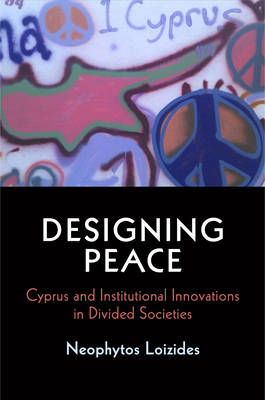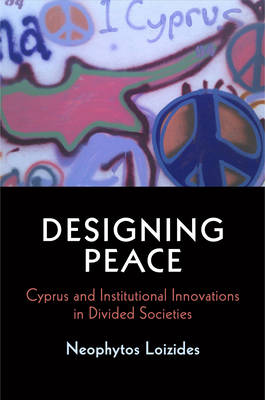
- Afhalen na 1 uur in een winkel met voorraad
- Gratis thuislevering in België vanaf € 30
- Ruim aanbod met 7 miljoen producten
- Afhalen na 1 uur in een winkel met voorraad
- Gratis thuislevering in België vanaf € 30
- Ruim aanbod met 7 miljoen producten
Zoeken
€ 122,45
+ 244 punten
Omschrijving
Why do some societies choose to adopt federal settlements in the face of acute ethnic conflict, while others do not? Neophytos Loizides examines how acrimoniously divided Cyprus could re-unify by adopting a federal and consociational arrangement inspiring similar attempts in its region.
Loizides asserts that institutional innovation is key in designing peace processes. Analyzing power-sharing in Northern Ireland, the return of displaced persons in Bosnia, and the preparatory mandate referendum in South Africa, he shows how divided societies have implemented novel solutions despite conditions that initially seemed prohibitive. Turning to Cyprus, he chronicles the breakthrough that led to the exhumations of the missing after 2003, and observes that a society's choice of narratives and institutions can overcome structural constraints. While Loizides points to the relative absence of successful federal and consociational arrangements among societies evolving from the "post-Ottoman space," he argues that neither elites nor broader societies in the region must be held hostages to the past. To effect lasting and positive change, Loizides encourages stakeholders in divided societies to be prepared to identify, redesign, and implement innovative new institutions. Examining successful peace mediations and identifying the shared experience and commonalities between Cyprus and other divided societies promises not only to inform the tackling of the Cyprus problem but also to provide transferable knowledge with broader implications for the fields of peace studies and conflict resolution.Specificaties
Betrokkenen
- Auteur(s):
- Uitgeverij:
Inhoud
- Aantal bladzijden:
- 264
- Taal:
- Engels
- Reeks:
Eigenschappen
- Productcode (EAN):
- 9780812247756
- Verschijningsdatum:
- 8/01/2016
- Uitvoering:
- Hardcover
- Formaat:
- Genaaid
- Afmetingen:
- 152 mm x 229 mm
- Gewicht:
- 544 g

Alleen bij Standaard Boekhandel
+ 244 punten op je klantenkaart van Standaard Boekhandel
Beoordelingen
We publiceren alleen reviews die voldoen aan de voorwaarden voor reviews. Bekijk onze voorwaarden voor reviews.








